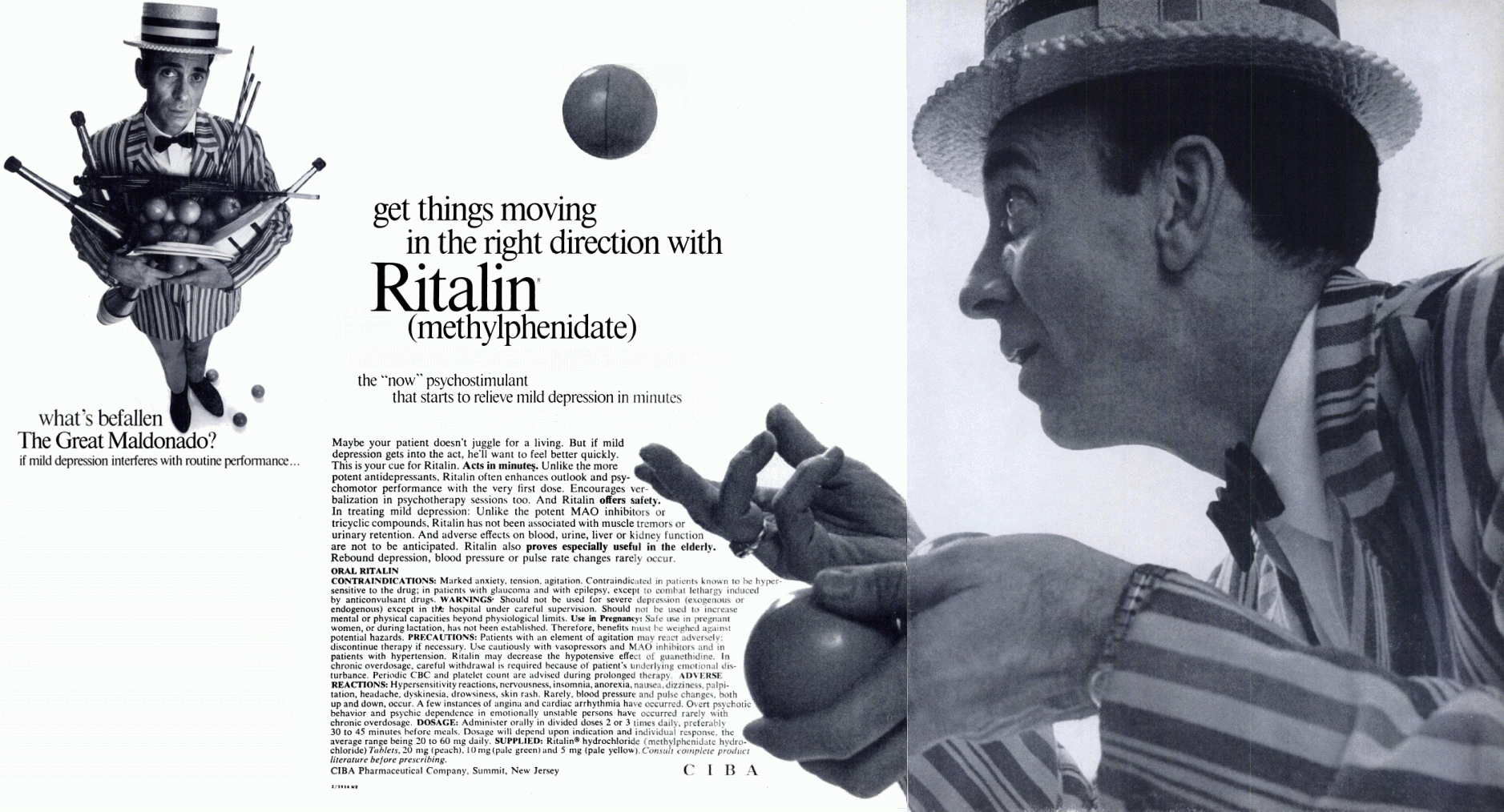

|
|
Ritalin advertisement, 1969. Hospital & Community Psychiatry, Vol. 20, No. 3. what's befallen The Great Maldonado? if mild depression interferes with routine performance... get things moving in the right direction with RITALIN® (methylphenidate) the "now" psychostimulant that starts to relieve mild depression in minutes Maybe your patient doesn't juggle for a living. But if mild depression gets into the act, he'll want to feel better quickly. This is your cue for Ritalin. Acts in minutes. Unlike the more potent antidepressants, Ritalin often enhances outlook and psychomotor performance with the very first dose. Encourages verbalization in psychotherapy sessions too. And Ritalin offers safety. In treating mild depression: Unlike the potent MAO inhibitors or tricyclic compounds, Ritalin has not been associated with muscle tremors or urinary retention. And adverse effects on blood, urine, liver or kidney function are not to be anticipated. Ritalin also proves especially useful in the elderly. Rebound depression, blood pressure or pulse rate changes rarely occur. Oral ritalin. CONTRAINDICATIONS: Marked anxiety, tension, agitation. Contraindicated in patients known to be hypersensitive to the drug; in patients with glaucoma and with epilepsy, except to combabt lethargy induced by anticonvulsant drugs. WARNINGS: Should not be used for severe depression (exogenous or endogenous) except in the hospital under careful supervision. Should not be used to increase mental or physical capacities beyond physiological limits. Use in Pregnancy: Safe use in pregnant women, or during lactation, has not been established. Therefore, benefits must be weighed against potential hazards. PRECAUTIONS: Patients with an element of agitation may react adversely; discontinue therapy if necessary. Use cautiously with vasopressors and MAO inhibitors, and in patients with hypertension. Ritalin may decrease the hypotensive effect of guanethidine. In chronic overdosage, careful withdrawal is required because of patient's underlying emotional disturbance. Periodic CBS and platelet count are advised during prolonged therapy. ADVERSE REACTIONS: Hypersensitivity reactions, nervousness, insomnia, anorexia, nausea, dizziness, palpitation, headache, drowsiness, skin rash. Rarely, blood pressure and pulse changes, both up and down, occur. A few instances of angina and cardiac arrhythmia have occurred. Overt psychotic behavior and psychic dependence in emotionally unstable persons have occured rarely with chronic overdosage. DOSAGE: Administer orally in divided doses 2 or 3 times daily, preferably 30 to 45 minutes before meals. Dosage will depend upon indication and individual response, the average range being 20 to 60 mg daily. SUPPLIED: Ritalin® hydrochloride (methylphenidate hydrochloride CIBA) Tablets, 20 mg (peach) 10 mg (pale green) and 5 mg (pale yellow). Consult complete product literature before prescribing. CIBA Pharmaceutical Company, Summit, N.J. CIBA |